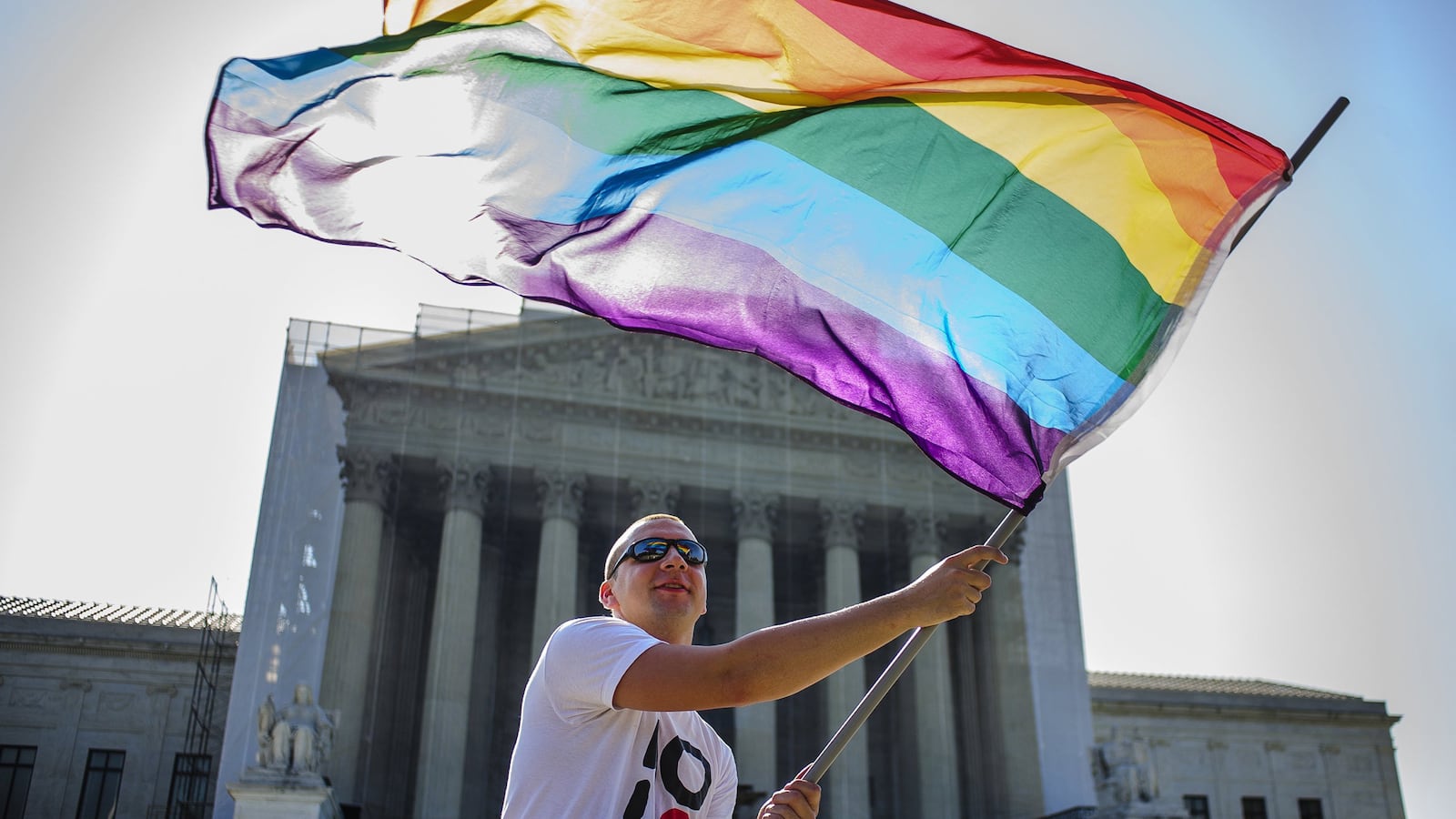It’s a gay day in America.
On Wednesday morning the Supreme Court made two highly anticipated decisions on same-sex marriage, striking down the Defense of Marriage Act and dismissing California’s Proposition 8 case.

The DOMA decision was handed down first, to much jubilation among the large crowd of gay-rights activists gathered outside the court. The 1996 federal law had barred defined the institution of marriage as a union between a man and a woman, thus denying federal benefits for gay couples whose marriages were recognized at the state level—like joint tax returns, Social Security, health insurance, pension protection, benefits for military couples, and immigration protections for couples from different countries.
But no longer: the court invalidated DOMA in a 5-4 ruling. Justice Anthony Kennedy, who delivered the decisive vote along with the court’s four liberal justices, wrote the majority opinion. DOMA “violates basic due process and equal protection principles applicable to the Federal Government,” Kennedy wrote.
Minutes after the decision was handed down, President Obama tweeted “Today’s DOMA ruling is a historic step forward for Marriage Equality. #LoveIsLove.” Conservatives criticized the decision; Todd Starnes, the host of Fox News & Commentary, tweeted, “Supreme Court overrules God.”
The DOMA ruling is a big deal, but not a shocking one: the constitutionality of the law has long been questioned, and the expert SCOTUSblog predicted that it would likely be struck down.
The Prop 8 ruling, on the other hand, is less decisive and more complicated. Prop 8 is a 2008 California ballot initiative that prohibited same-sex marriage by amending the state’s constitution. The case was dismissed today on the basis that the petitioners don’t have standing; since the California courts have already struck down Prop 8, the lawyers opposing the bill don’t have standing to defend it. This means the court has effectively validated the rulings of lower courts that have rejected Prop 8.
The ruling was not divided across the predictable liberal-conservative divide. The majority opinion to dismiss Prop 8 was written by Chief Justice John Roberts, who was joined by Justices Antonin Scalia, Elena Kagan, Ruth Bader Ginsburg, and Stephen Breyer.
So if you’re a same-sex couple in California and want to get married, the court just cleared the way for that to happen. Lt. Gov. Gavin Newsom predicted on Twitter that gay marriages would begin in the state within a month or two.
In neither decision did the Supreme Court legalize same-sex marriage nationally—that will require a lot more legislation. But if you’re in a same-sex marriage already, your rights just broadened exponentially.






